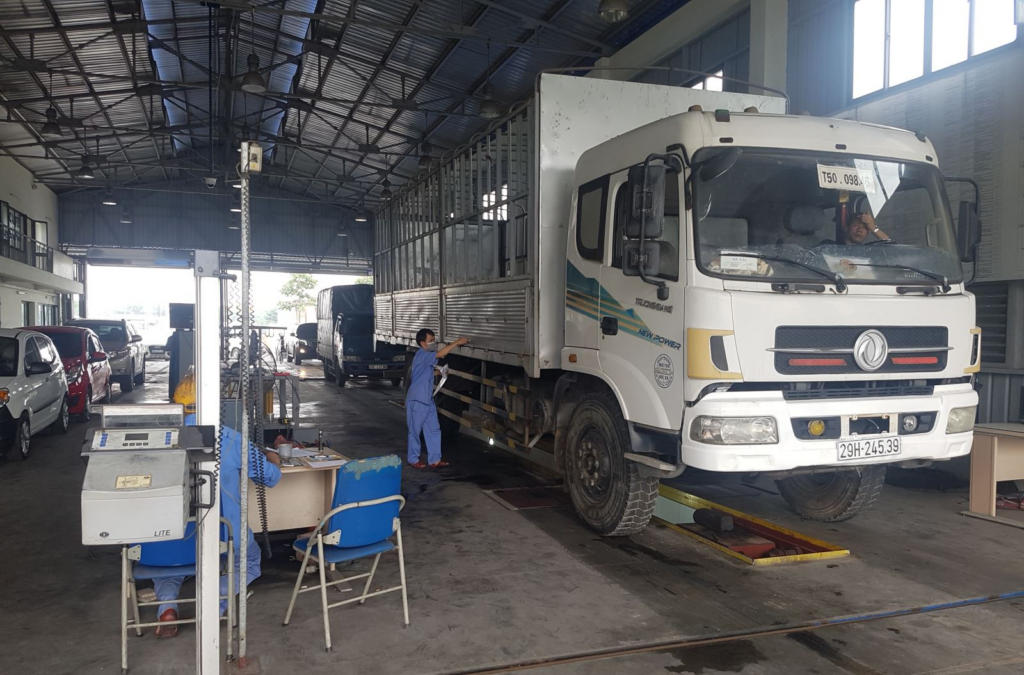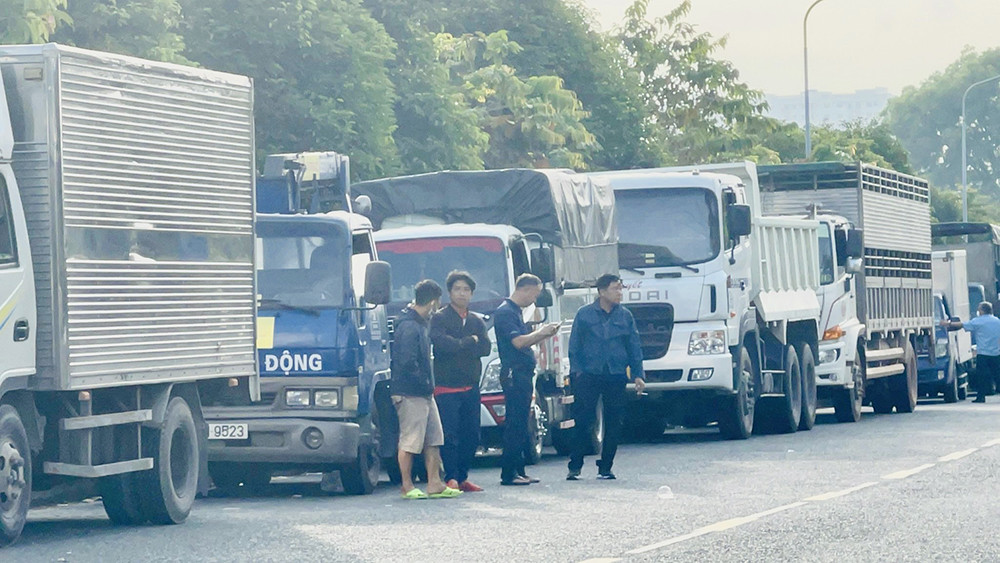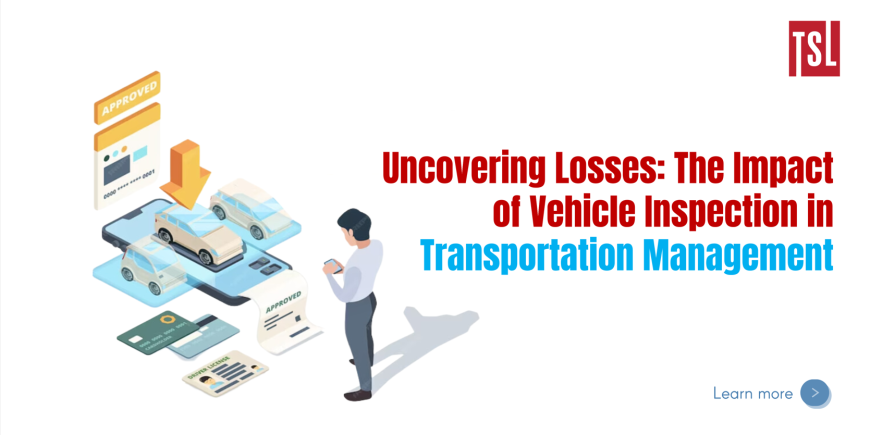Uncovering Losses: The Impact of Vehicle Inspection in Transportation Management
Vehicle inspection is a requirement in the transportation sector that must be met to ensure overall technical safety and environmental protection. However, the vehicle inspection process frequently encounters numerous problems and barriers in Vietnam. Because of the delay in vehicle inspections, this has an impact not only on individual vehicle owners but also on many transportation companies. This delay results in financial losses and has a bad effect on the companies’ day-to-day transportation operations and reputation.
 Currently, specialized trucks, trailers, and semi-trailers used in freight transportation must go through inspection every 12 to 24 months. The truck is unable to operate if the inspection date is missed, which can lead to significant revenue losses that occasionally total hundreds of millions of Vietnamese dong. Additionally, a series of import-export contracts and consumer goods transportation contracts nationwide may be suspended, with the risk of penalties from existing partners. Therefore, scheduling vehicle inspections carefully is essential to the operations of companies with their own fleet of cars.
Currently, specialized trucks, trailers, and semi-trailers used in freight transportation must go through inspection every 12 to 24 months. The truck is unable to operate if the inspection date is missed, which can lead to significant revenue losses that occasionally total hundreds of millions of Vietnamese dong. Additionally, a series of import-export contracts and consumer goods transportation contracts nationwide may be suspended, with the risk of penalties from existing partners. Therefore, scheduling vehicle inspections carefully is essential to the operations of companies with their own fleet of cars.
The wait time for the process of inspection to be completed is one of the key problems. Businesses often have to wait hours or even days before their vehicles can be inspected and certified due to the large number of vehicles undergoing inspection in numerous locations. This waiting period disrupts regular transportation operations, which results in lost business opportunities and even threats to delivery schedules.
 Furthermore, the cost of vehicle inspection is an issue of concern for transportation companies. Inspection charges include inspection fees, certification fees, and various additional costs, which may put a financial burden on enterprises, especially small and medium-sized ones. This may reduce profitability and increase transportation expenses, reducing industry competitiveness.
Furthermore, the cost of vehicle inspection is an issue of concern for transportation companies. Inspection charges include inspection fees, certification fees, and various additional costs, which may put a financial burden on enterprises, especially small and medium-sized ones. This may reduce profitability and increase transportation expenses, reducing industry competitiveness.
Moreover, the lack of clarity in the inspection procedure is a difficult issue for transportation companies. Incorrect or not enough inspection process information might cause confusion and delays in performing the essential procedures. Businesses have to put their resources into understanding inspection requirements and laws while ensuring strict compliance to avoid unnecessary mistakes.
In the first half of 2023, each vehicle had to suspend operations for 2-3 days on average at each inspection for repairs and replacement of parts before passing the inspection process. Suspending operations for a week results in a loss of revenue of 25-30 million Vietnamese dong per vehicle, but the business must still pay fixed expenses of approximately ten million Vietnamese dong.
 To solve the loss caused by vehicle inspection delays, transportation companies must actively create solutions instead of waiting for government directives to alter things. Some these solutions are:
To solve the loss caused by vehicle inspection delays, transportation companies must actively create solutions instead of waiting for government directives to alter things. Some these solutions are:
- Prepare vehicle inspection documents: Before inspection, ensure that the vehicle inspection records for each vehicle are accurately filled out, reducing the need for further revisions.
- Regular maintenance and repairs: Saving time and money by avoiding the need to wait for inspections only to return for repairs
- Schedule regular vehicle inspections. This ensures that a portion of the fleet is always valid for operation.
- Plan inspections ahead of time: This is a significant factor; businesses must plan vehicle inspections for the entire fleet ahead of time rather than waiting until the expiration date. Registering on time helps to avoid waiting for inspections, which saves the business money.
The solutions mentioned above can be handled more quickly and efficiently with Transportation Management System (TMS) automated planning and management capability.
Besides from the vehicle inspection stories, businesses have to cope with a variety of extra and labor expenses, such as the time-consuming process of order information and assignment, manual delivery methods, and all route dependence on drivers.
 Common issues in transportation businesses/managing fleets can be comprehensively managed by the flexible and quickly deployable Skyfrog system with appropriate investment costs.
Common issues in transportation businesses/managing fleets can be comprehensively managed by the flexible and quickly deployable Skyfrog system with appropriate investment costs.
With the TMS solution, managers can receive accurate and timely information on real-time of vehicles and order statuses, optimize routes, and delivery methods for drivers. Moreover, with TMS’s strong integration capabilities, customers can manage order information and delivery performance on various devices, providing visual and accurate reports anytime, anywhere.







